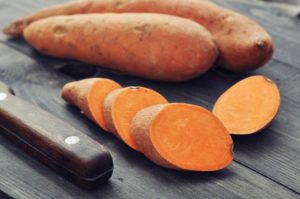 Reducing blood pressure is one of the main health concerns of our time. Over 100-million Americans have it, and it severely jacks up the risk for a heart attack or stroke.
Reducing blood pressure is one of the main health concerns of our time. Over 100-million Americans have it, and it severely jacks up the risk for a heart attack or stroke.
You’ve heard that you should eat more veggies, less salt, and processed food advice before. And that’s all great information. But what you really want to focus on is fighting “low-grade inflammation.”
Advertisement
Low-grade inflammation the type that sticks around even though there is typically no need for it. It slowly wears away at your blood vessels, making them stiffer and much more difficult for blood to flow. The more difficult it is for blood to get through your veins and arteries, the higher your blood pressure goes. Next thing you know, you’ve got hypertension.
Now, this does not happen overnight. It creeps up over time, so the key is to get out ahead of it. If you already have high blood pressure, you can also stop it from climbing and reduce it by making some lifestyle changes.
When it comes to lowering blood pressure and reducing the risk of heart attack and stroke, some foods maybe a little better than others. Here are a few of the best:
Tomatoes: Tomatoes get their color from lycopene, a powerful antioxidant that can have specific benefits for heart health. Lycopene can neutralize free radicals that affect heart health, while research has shown they can lead to reductions in systolic blood pressure (the top number in a reading that measures vessel pressure during a heartbeat).
You get the best dose of lycopene from cooked tomatoes.
Advertisement
Sweet Potato: Sweet potato is one of the best sources of heart-healthy potassium that you can get. Potassium helps your heartbeat regularly and your kidneys to filter blood, among other functions. Sweet potato is also a great source of vitamin C and beta-carotene, two antioxidants that can protect blood vessel integrity by fighting oxidation from free radicals.
Blueberries: Like lycopene makes tomatoes red, anthocyanin antioxidants give blueberries their deep purple hue. Research has shown that anthocyanins can improve blood pressure by widening and relaxing blood vessels. Eating a cup per day is associated with lower systolic blood pressure.
Pistachios: All nuts are good for your heart—provided they are not heavily salted or sugared—but pistachios might be the best. They are a great source of potassium, vitamin E, lutein, and zeaxanthin, all powerful anti-inflammatory that can ease conditions leading to hypertension. It’s possible that 1.5 pounces per day—about a handful—can reduce blood pressure.
